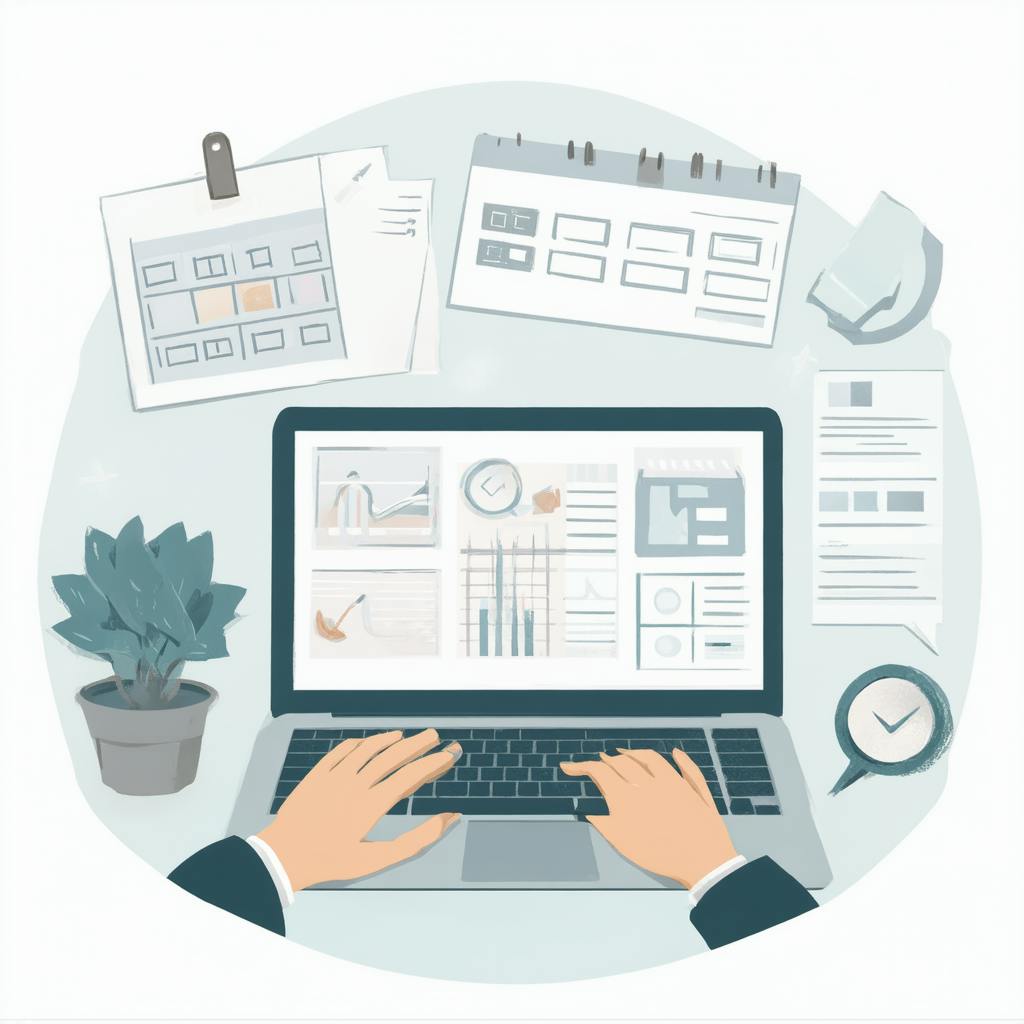Managing campaign logistics has become a pivotal aspect of successful marketing endeavors. Businesses are increasingly realizing the importance of not just crafting compelling marketing messages but also ensuring that these campaigns are executed seamlessly. Effective campaign workflow management is crucial in achieving marketing objectives, and this article delves into the intricacies of campaign logistics, offering insights into optimizing ad campaign scheduling and resource management.
Understanding of Campaign Workflow Management
To streamline the logistics of marketing campaigns, one must first have a clear grasp of campaign workflow management. This involves mapping out every stage of the campaign from inception to execution, understanding key deliverables, and defining roles and responsibilities. By establishing a structured workflow, marketing teams can eliminate confusion, reduce downtime, and ensure that campaign objectives are met with precision.
Campaign managers should utilize project management tools that provide real-time insights and facilitate collaboration among team members. Tools such as Trello, Asana, and Monday.com can greatly enhance the clarity and efficiency of campaign logistics, ensuring that every team member is aligned and focused on their specific tasks.
Planning in Ad Campaign Scheduling
Ad campaign scheduling is a critical component of managing campaign logistics. It involves strategically plotting out when and where ads will run to maximize reach and engagement. Concise and meticulous planning is essential to avoid overlaps and to ensure campaigns align with target audience behaviors and preferences.
A successful scheduling strategy leverages data analytics to determine peak times for audience engagement. Employing tools like Google Calendar and campaign management software can help in setting up a streamlined schedule, preventing conflicts, and optimizing ad spend. This approach allows businesses to deploy ads when they will have the most impact, enhancing the overall effectiveness of the marketing campaign.

AI made with Dean Jones
Strategy for Campaign Resource Management
Campaign resource management is another crucial aspect of managing campaign logistics. It involves the allocation of both human and financial resources to ensure that campaigns are delivered efficiently without overrunning budgets or overburdening staff.
To adopt a compelling strategy, businesses must assess their available resources and prioritize tasks accordingly. This includes identifying skill sets within the team, budgeting appropriately for each phase of the campaign, and leveraging external resources when needed. Regular assessments and adjustments to resource allocation can lead to more agile and responsive marketing efforts.
Answers to Frequently Asked Questions
What are some common challenges in managing campaign logistics?
Common challenges include poor communication, inadequate resource allocation, lack of clear objectives, and ad scheduling conflicts. These can be mitigated by adopting effective workflow management practices and employing robust project management tools.
How can technology aid in streamlining campaign logistics?
Technology plays a crucial role in streamlining campaign logistics by offering tools for project management, data analytics, and communication. These technologies facilitate better planning, collaboration, and performance measurement.
What is the impact of poor logistics management on marketing campaigns?
Poor logistics management can lead to missed deadlines, budget overruns, ineffective targeting, and ultimately, failure to meet campaign goals. It can also result in wasted resources and diminished return on investment.
Managing Campaign Logistics: Frequently Asked Questions (FAQ)
Marketing campaigns are essential for businesses looking to increase brand awareness, engage customers, and drive sales. However, managing the logistics of these campaigns can be a complex and time-consuming task. In this FAQ article, we'll explore how to streamline the process of managing campaign logistics, review tools available for efficient management, identify common challenges, and discuss how technology can be leveraged to optimize logistics management.
How Can We Streamline the Process of Managing Campaign Logistics?
Streamlining campaign logistics involves simplifying procedures and improving efficiency. Here are some strategies:
- Planning and Organization: Begin with a detailed plan, outlining all campaign components, timelines, budgets, and responsibilities. Utilize project management techniques like Gantt charts or Kanban boards to visualize the workflow.
- Effective Communication: Establish clear communication channels among team members and stakeholders. Regular updates and meetings help keep everyone on the same page.
- Standard Operating Procedures (SOPs): Develop SOPs for repetitive tasks and processes. This reduces ambiguity and ensures consistency.
- Outsource Where Possible: Consider outsourcing non-core tasks to external agencies or freelancers. This allows your team to focus on strategic activities.
- Feedback Loops: Implement feedback systems to learn from each campaign and improve future logistics management.

AI made with Dean Jones
What Tools Are Available to Assist in Managing Campaign Logistics More Efficiently?
Numerous tools can enhance the efficiency of campaign logistics. Here are some popular options:
- Project Management Software: Tools like Asana, Trello, or Monday.com help organize tasks, track progress, and manage timelines effectively.
- Collaboration Platforms: Use platforms like Slack, Microsoft Teams, or Zoom for seamless communication and collaboration.
- Marketing Automation: Software like HubSpot, Marketo, or Mailchimp can automate repetitive marketing tasks, such as email campaigns, social media posting, and lead management.
- Budgeting Tools: Solutions like Microsoft Excel, Google Sheets, or specialized software such as Allocadia help manage and track campaign budgets in real-time.
- Customer Relationship Management (CRM): Platforms like Salesforce or Zoho CRM assist in managing customer data and interactions, which is crucial for personalized marketing campaigns.
What Are Some Common Challenges in Managing Campaign Logistics and How Can They Be Overcome?
Managing campaign logistics can present several challenges:
- Poor Coordination: Miscommunication and lack of coordination can lead to conflicts and delays. Overcome this by establishing clear communication protocols and using collaboration tools.
- Resource Constraints: Time, budget, or manpower constraints can hinder campaign success. Prioritize tasks, utilize automation, and make data-driven decisions to manage resources effectively.
- Data Management: Handling large volumes of data can be overwhelming. Implement robust CRM systems and data analytics tools to organize and analyze data efficiently.
- Unforeseen Changes: Campaigns often require adjustments based on new information or unexpected events. Maintain flexibility and have contingency plans in place.
- Compliance and Legal Issues: Navigating regulations and legal requirements can be complex. Keep your legal team involved throughout the process and use compliance management tools.
How Can Technology Be Leveraged to Streamline Campaign Logistics Management?
Technology plays a crucial role in optimizing campaign logistics:
- Automation: Automation tools can handle repetitive tasks, freeing up your team for more strategic work. This includes automating email marketing, social media scheduling, and lead scoring.
- Data Analytics: Leverage analytics platforms to gain insights into campaign performance, customer behavior, and market trends. This data-driven approach allows for better decision-making.
- Cloud-Based Solutions: Use cloud-based tools for easy access to information and collaboration from anywhere. This is especially beneficial for remote teams.
- Artificial Intelligence (AI): AI can enhance targeting, personalization, and content creation, leading to more effective campaigns with fewer manual inputs.
- Integration: Integrate various tools and systems to ensure seamless data flow and reduce manual data entry and reporting errors.
By adopting these strategies, tools, and technologies, organizations can significantly streamline campaign logistics, overcome common challenges, and improve overall marketing effectiveness.
Conclusion
Managing campaign logistics is a multifaceted process that requires a clear understanding, concise planning, compelling strategies, and credible resources. By focusing on these elements, businesses can streamline their marketing efforts, leading to more effective and impactful campaigns. As marketing landscapes continue to evolve, the importance of efficient campaign logistics management will remain critical to achieving success in the competitive digital sphere.

